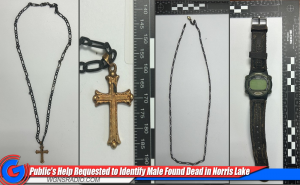ojoijd
St. Thomas Heart
Saint Thomas Heart has implanted four patients with Abbott's CardioMEMS™ HF System as part of the landmark GUIDE-HF clinical trial. Saint Thomas West Hospital is one of 140 centers participating in this study.
The trial will evaluate improved survival and quality of life with Abbott's CardioMEMS™ HF System. Heart failure occurs when the heart is unable to pump enough blood to meet the body's needs. It costs Americans a great deal, not just financially, but in length and quality of life.
"Saint Thomas Heart continues to lead in cardiac care excellence, and this innovative technology will be a meaningful part of our program which improves outcomes for heart failure patients," said Dr. Mark Freeman Aaron, Saint Thomas Heart cardiologist, who performs the procedure.
The GUIDE-HF clinical trial is the largest heart failure medical device trial in the U.S. The trial uses Abbott's CardioMEMS HF System, which supports heart failure management by measuring pulmonary artery pressure (PAP) from within the body. Building on previous clinical trials, the GUIDE-HF trial will study whether the CardioMEMS device can reduce heart failure hospitalization and improve survival and quality of life for people living with New York Heart Association (NYHA) Class II-IV heart failure.
"Saint Thomas is committed to expanding access to sophisticated cardiac care and continually invests in innovative medical technology such as the CardioMEMS HF System," said Fahad Tahir, President & CEO Saint Thomas Midtown & West Hospitals. "Safety, quality and successful patient outcomes remain a priority in the diagnosis or treatment of heart failure and this technology will allow the experts at Saint Thomas Heart to better serve individuals in the communities we are privileged to serve."
Heart failure is the leading cause of hospitalization for Americans over age 65. According to the American Heart Association, nearly 6 million Americans have heart failure and 900,000 new patients are diagnosed each year. The estimated direct and indirect cost of heart failure in the U.S. in 2012 was $31 billion and that number is expected to more than double by 2030. Patients with heart failure are frequently hospitalized, have a reduced quality of life and face a higher risk of death. The Centers for Disease Control and Prevention says that half of heart failure patients die within five years of diagnosis.
ABOUT ASCENSION SAINT THOMAS HEALTH
In Tennessee, Ascension's Saint Thomas Health operates nine hospitals in addition to a comprehensive network of affiliated joint ventures, medical practices, clinics and rehabilitation facilities that cover a 68-county area and employ more than 8,000 associates. Across the state, Saint Thomas Health provided more than $127 million in community benefit and care of persons living in poverty in fiscal year 2018. Serving Tennessee for 15 years, Ascension is a faith-based healthcare organization committed to delivering compassionate, personalized care to all, with special attention to persons living in poverty and those most vulnerable. Ascension is the largest non-profit health system in the U.S. and the world's largest Catholic health system, operating more than 2,600 sites of care - including 151 hospitals and more than 50 senior living facilities - in 21 states and the District of Columbia. Visit www.sthealth.com.
GUIDE-HF
The GUID-HF clinical trial is an investigational device exemption (IDE) study that began in March of 2018 and will continue through 2023. GUIDE-HF will enroll more than 3,600 patients at 140 hospitals around the U.S. Additionally, if successful, the study will expand coverage to a larger group of at-risk heart failure patients.
CardioMEMS HF System
The CardioMEMS HF System, from global medical device manufacturer Abbott, is approved by the U.S. Food and Drug Administration (FDA) for commercial use in the U.S. The CardioMEMS sensor is designed to last the lifetime of the patient and doesn't require batteries. Once implanted, the wireless sensor sends pressure readings to an external patient electronic system. There is no pain or sensation for the patient during the readings. The CardioMEMS HF System allows the patients to transmit critical information about their heart failure status to a clinician on a regular basis, without the need for additional clinic or hospital visits. This provides clinicians with the ability to detect worsening heart failure sooner and adjust treatment to reduce the likelihood that the patient will need to be hospitalized. For more information, visit http://www.heartfailureanswers.com/.













